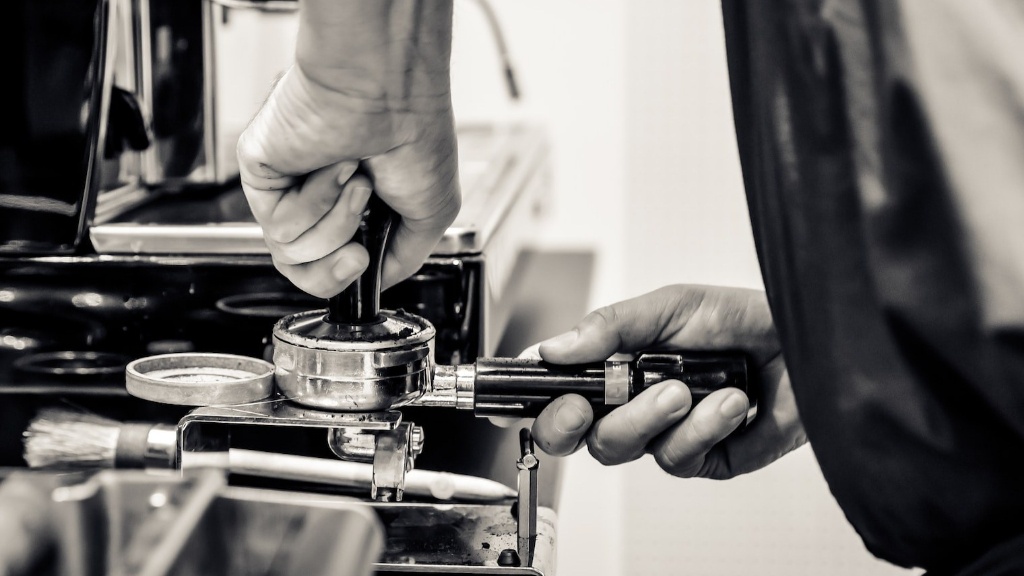Having a wisdom tooth extracted can cause nervousness and make you wonder about a lot of things. A common question people have is whether it is alright to drink coffee the day after having their wisdom tooth removed. The answer is not a straightforward one and depends on a few things.
Drinking coffee too soon after a wisdom tooth extraction can cause complications including pain and swelling. This is due to the fact that the hot beverage increases blood flow to the extraction site, causing complications. Additionally, drinking coffee can make the extraction site bleed, which can ultimately lead to dry socket, an infection in the tooth’s socket. Dry socket can become extremely painful and cause bad breath and bad taste in the mouth. To prevent this, it is important to wait at least 24 hours between drinking coffee and getting your wisdom tooth extracted.
Experts suggest having a nutritionist evaluate your diet to make sure it is well balanced and incorporate plenty of vitamins and minerals prior to your tooth extraction. This advice is important because the vitamins and minerals found in food will contribute to a quick recovery process, which could potentially shorten the amount of time you need to wait before drinking coffee. Additionally, your dentist might also choose to put a special dressing over the extraction area that can be replaced a few days after the surgery, which can further reduce the possibility of experiencing a dry socket.
Due to the consequences of drinking coffee too soon after a wisdom tooth extraction, it is suggested to abstain from consuming coffee for a period of at least 24 hours. Not having coffee for a day should not be too disheartening, as there are plenty of other beverages out there that do not come with the same risks associated with coffee. Moreover, postponing having coffee can actually help you get rid of coffee withdrawal headaches, as some people experience them if they go without coffee for too long. Anyways, having a cup of coffee the day after your wisdom tooth extraction could still come with some risks and it is best to talk to your dentist to make sure that it is safe.
Pain Relief
Managing pain is key to promote a successful healing process, and one way to alleviate pain is through ibuprofen or other anti-inflammatory pain relievers. Taking the medication as prescribed by a dentist as it is beneficial and will help to keep pain in check. In addition, using ice packs or over the counter pain medications can also help with the discomfort that comes with wisdom tooth extraction.
In terms of pain management, it is important to not overdo it and avoid smoking, as this can cause further damage and delay the healing process. Additionally, trying to eat foods that are not too hard after the extraction can also help in the process, as they lessen the chances of having inflammation.
Apart from pain reduction, handling stress and anxiety following wisdom tooth extraction is also key. Some people might be more sensitive and experience more anxiety due to the situation, so speaking to a doctor or specialist might be beneficial to help cope with the aftermath. The knowledge of the situation and the fact that it will eventually heal, is key for an individual to stay positive and focussed.
Self-Care
With the extraction come different types of aftercare instructions to be followed. Avoiding brushing near the extraction site is important and doctors usually suggest using a special mouthwash prescribed to individuals after the extraction. Swishing it with the mouth and spitting it out, while avoiding the extraction site, is the suggested method.
Furthermore, certain activities such as strenuous sports and exercises should be avoided, at least for the first 48 hours after the wisdom tooth extraction. People should also not rinse their mouth vigorously after the surgery, as this can cause bleeding. Instead, they can use a damp cloth to wipe the extraction area.
In addition, having enough rest and sleep right after the procedure is also suggested, as this can help with recuperation. Proper hygiene of the extraction site after the procedure is also beneficial. This consists of frequently cleaning the area with a damp cloth, rinsing with special mouthwash and avoiding contact with the area for at least 24 hours.
Long-Term Care
Having a good oral hygiene routine from the very beginning is important to guarantee a successful recovery process and maintain a healthy mouth. Schedule regular check-ups with your dentist to make sure that your mouth and teeth are in good shape. Moreover, brushing twice per day and flossing once is highly advised, as this will keep bacteria at bay.
In terms of diet, food that can stick on any kind of gap or cavity that is caused by the extraction should be avoided. This will help avoid infections and can even fill the gap with the time, although it is advised to have the extraction site evaluated during regular check-ups with the dentist.
Finally, eating plenty of fruits and vegetables, as well as nuts, gets the body the nutrients it needs to rebuild the extraction site. Furthermore, including Vitamin C, Omega-3 and Calcium rich foods, as well as avoiding sugary foods and drinks, is highly recommended.
Usual Healing Time
The healing process after a wisdom tooth extraction can last anything between 7 and 10 days, depending on the person and the extent of the surgery. Having a clear plan and understanding post-surgery instructions is important and will help expedite the healing process. Being informed and following all given instructions is paramount and will ensure that the recovery is successful.
Also, having supplements or over-the-counter medications that can help support the healing process is advised. This can boost the immune response, provide the right minerals and vitamins, which are the building blocks for healthy tissue.
It is important to stay hydrated and drink plenty of water after the extraction procedure. Furthermore, adding herbal teas, such as chamomile and peppermint, to the daily diet can help reduce inflammation, pain and swelling.
Symptoms of Infection
Depending on the individual, delays in healing, drainage from the extraction site, fever, soreness, a bad taste in the mouth, and bad breath are some common signs of infection after a wisdom tooth extraction. In case any of these symptoms is present, then it is important to contact a dentist immediately.
Other symptoms of infection can include dizziness, nausea, dry socket, and excessive bruising or swelling. Additionally, having some discharge or noticing that the site is not closing or healing is also possible. In the event of experiencing any of these symptoms, it is essential to contact your dentist right away.
Lastly, if the extraction is near the jawbone, then it is important to have check-ups to make sure that the jaw has healed correctly. This will ensure that the recovery process is going smoothly and help avoid complications down the line.



